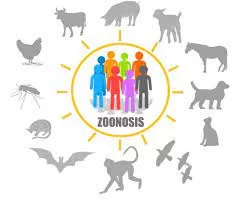Yoga is widely celebrated for its health benefits, especially as we age—but could it be the key to a long life? Daisy Taylor, a 105-year-old from Chelmsford, England, believes it might be. In a recent interview on her milestone birthday, Taylor told the BBC that she credits yoga, along with her positive outlook on life, for her exceptional longevity. Although she now practices yoga mostly in a chair rather than on a mat, Taylor still enjoys the mental clarity and fitness it provides.
Taylor’s story is far from unique. Throughout the world, notable yoga practitioners have lived long, healthy lives. One such example is B.K.S. Iyengar, a legendary yoga teacher who, after surviving several serious illnesses as a child, practiced yoga for up to ten hours a day. He went on to live to 95. Similarly, his teacher Tirumalai Krishnamacharya lived to 100, and his student, Ashtanga yoga founder Krishna Pattabhi Jois, reached the age of 93. These stories have sparked widespread curiosity about the potential connection between yoga and longevity.
Studies support the idea that yoga offers a wide range of benefits as we age. Research shows that yoga can help reduce age-related risks such as high blood pressure, high cholesterol, and obesity. It also alleviates stress, anxiety, and depression, while promoting a healthier lifestyle, including better diet choices.
Furthermore, there is growing evidence that yoga may influence aging at the cellular level. A study showed that yoga practitioners had a 43% increase in telomerase activity, a key enzyme that slows down cellular aging, compared to only a 4% increase in those who practiced relaxation. Additionally, some long-term practitioners have been observed to enter a physiological state similar to hibernation, where their heart rate, breathing, and body temperature drop significantly. This state is believed to extend lifespan in animals, and some argue that it could have the same effect on humans.
Yoga also seems to support mental fitness as we age. A study found that yogis tend to have larger brain mass, particularly in the hippocampus, an area crucial for memory formation, compared to non-practitioners of the same age. The longer someone practices yoga, the greater the size of their brain mass. Meditation, a key component of yoga, has been shown to have similar effects. In one study, participants who meditated for just four months experienced a significant increase in brain mass, particularly in the hippocampus, suggesting that yoga and meditation might slow cognitive decline and help maintain mental sharpness.
In addition to cognitive health, yoga has been linked to improved “fluid intelligence,” or the ability to solve new problems and learn new skills. Middle-aged people who practiced yoga or meditation for years performed better on tests of fluid intelligence than those who did not.
While there is substantial evidence linking yoga to better health in old age, questions remain about whether it directly prolongs life. One large-scale study examined over 22,000 people and found that those who practiced yoga had a much lower risk of dying within an average of 8.5 years compared to non-practitioners. However, when researchers adjusted for age, there was no significant difference in mortality between yogis and non-yogis.
For Daisy Taylor, her longevity may have more to do with her family history—she has several siblings who have also lived past 90—but she firmly believes that yoga has played a crucial role in her mental and physical well-being.
In the end, while yoga might not extend life in the way we expect, it certainly helps improve the quality of life as we grow older. For many, like Taylor, it provides not only physical health but also a sense of peace and joy as they navigate the challenges of aging.












